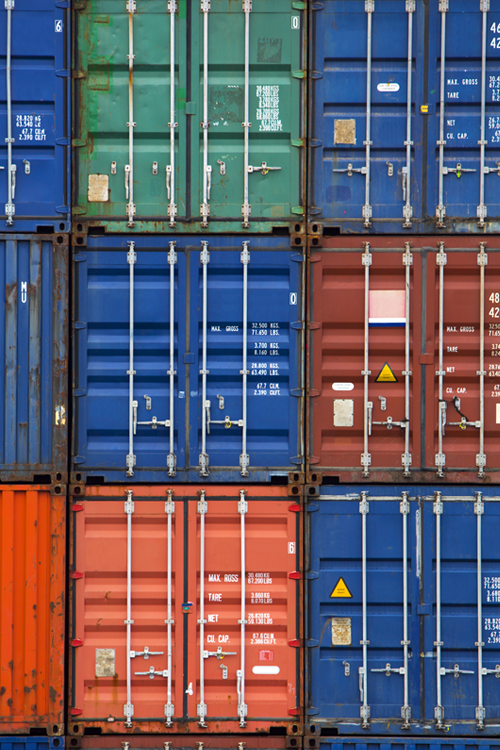The Transportation Safety Board (TSB) issued a press release yesterday announcing “modernized” regulations for the transportation sector. Much of the changes relate to the mandatory reporting requirements for Aviation, Marine, Railway, and Pipeline accidents.
Particularly given the recent tragedy at Lac-Mégantic, it may surprise both industry insiders and the general public that the proposed regulations significantly loosen the requirements for reporting of spills of toxic and dangerous substances, like oil.
Under the old (and current) regulations, the provisions describing an ‘incident’ that triggered the mandatory reporting procedure were contained in the definitions section:
“reportable marine incident” means an incident resulting directly from the operation of a ship, other than a pleasure craft, where… (i) any dangerous goods are released on board or from the ship; […]
“reportable railway incident” means an incident resulting directly from the operation of rolling stock, where […] (b) the rolling stock […] (iii) is involved in a collision or derailment and is carrying dangerous goods, or is known to have last contained dangerous goods the residue of which has not been purged from the rolling stock, [or] […] (h) any dangerous goods are released on board or from the rolling stock…
Not only do the current regulations require reporting for any releases of any amount of dangerous chemicals; in the case of railcars a report must be made where rolling stock is involved in an incident and last contained dangerous goods. Pretty serious stuff.
The new regulations ‘modernized’ by moving the definition of reportable incidents into the active sections for each of the modes describing the mandatory reporting procedure. But they also changed the dangerous goods provisions to incorporate substance limits by reference, rather than directly:
s.3(1) The operator of the ship, other than a pleasure craft […] must report the following marine occurrences to the Board: (f) there is an accidental release on board or from the ship consisting of a quantity of dangerous goods or an emission of radiation that is greater than the quantity or emission levels specified in Part 8 of the Transportation of Dangerous Goods Regulations.
s.5(1) The operator of the rolling stock, the operator of the track and any crew member that have direct knowledge of a railway occurrence must report the following railway occurrences to the Board: […] (j) there is an accidental release on board or from a rolling stock consisting of a quantity of dangerous goods or an emission of radiation that is greater than the quantity or emission level specified in Part 8 of the Transportation of Dangerous Goods Regulations. [emphasis mine]
Before turning to the Dangerous Goods Regulations, it is also worthwhile noting that the intent level of “accidental” has also been added to the definitions: the wording now implies that there is no obligation under the Regulations to report intentional discharge of dangerous goods!
Part 8 of the Transportation of Dangerous Goods Regulations sets out the requirement for mandatory reporting for each of the nine classes of dangerous goods as follows:
|
Class |
Quantity |
| 1 Explosives | Any quantity that (a) could pose a danger to public safety or is greater than 50 kg […] |
| 2 Gas | Any quantity that could pose a danger to public safety or any sustained release of 10 minutes or more |
| 3 Flammable Liquids | 200 L |
| 4 Flammable Solids | 25 kg |
| 5.1 Oxidizing substances | 50 kg or 50 L |
| 5.2 Organic Peroxides | 1 kg or 1 L |
| 6.1 Toxic | 5 kg or 5 L |
| 6.2 Infectious | Any quantity |
| 7 Radioactive | Any quantity that could pose a danger to public safety |
| 8 Corrosive | 5 kg or 5 L |
| 9 Other | 25 kg or 25 L |
The differences are not hard to see: The only dangerous goods that strictly require reporting when released in any quantity are infectious goods. Even radioactives, explosives, and dangerous gases require mandatory reporting only when released in quantities that “could pose a danger to public safety” – an alarming level of discretion in reporting.
Of course, the mandatory reporting provisions are intended to protect public safety, not only by ensuring an appropriate response but by ensuring that even minor accidents are documented and the causative problems addressed. Without mandatory reporting for minor incidents, the major accidents that will inevitably happen will come out of the blue.
In my view these changes are misguided, and given the very real national debates taking place around Keystone XL and Lac-Mégantic, in particular, the government’s timing in reducing oversight and reporting obligations could not be worse.
We should not wait for major accidents to happen before we consider the impact on public safety.




